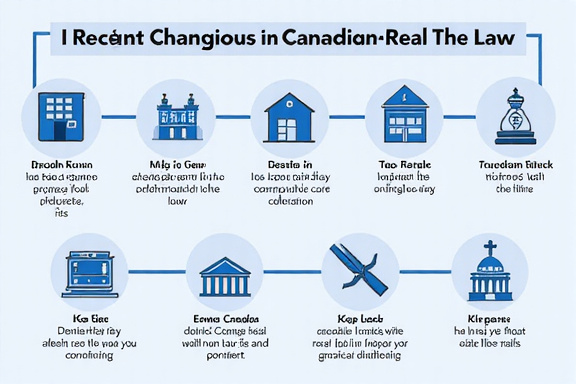
Recent Changes in Canadian Real Estate Law
The Canadian real estate landscape has undergone significant legal changes in 2023 that every buyer should know about. The new Foreign Buyer Ban now prohibits non-Canadians from purchasing residential properties for two years, with some exceptions. Additionally, the Underused Housing Tax now applies to vacant or underused residential properties owned by non-residents.
Other important updates include stricter mortgage stress test requirements and enhanced consumer protection measures in real estate transactions. These changes aim to cool the housing market and make homeownership more accessible to Canadians.
Read more →
